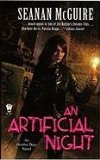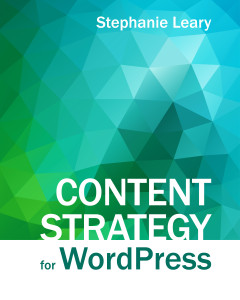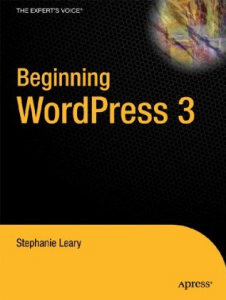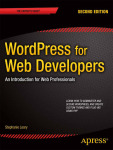
Remember [link id=”2830″]back in April, when I gushed a bit about Seanan McGuire[/link], and I was all excited that she had a new book coming out the next day? Well, I never got around to reviewing that book, mainly because there was just too much to say, but I’m going to try anyway. And, hey, she has another new book coming out tomorrow! I scored an ARC in one of her Twitter giveaways, so I can review that, too.
Short version: I’m still loving the October Daye series, but Feed (written as Mira Grant) is my favorite book of the year so far. Mind you, this is a year that includes (among other things) Jennifer Crusie’s first solo novel in six years, the first new Miles Vorkosigan book in nine years
, a new romance from Joanna Bourne
, the sequel to Retribution Falls, and the most kick-ass installment of the Dresden Files
since the one with the zombie dinosaur
. Lots of things I was really looking forward to, in other words, and they were all great. Still, Feed wins.
And Seanan won the Campbell Award over the weekend, which I think is well deserved.
[Cut for long.]

 Feed just blew me away. I must say up front: I am not a zombie fan. I enjoy the lighthearted stuff, like Shaun of the Dead and the occasional shambler wandering into Buffy’s path, but on the whole, zombie flicks are not for me.
Feed just blew me away. I must say up front: I am not a zombie fan. I enjoy the lighthearted stuff, like Shaun of the Dead and the occasional shambler wandering into Buffy’s path, but on the whole, zombie flicks are not for me.
Thanks to this book, I might have to stop saying things like that.
Feed is, depending on your point of view, either a zombie thriller with political-journalism leanings, or a meditation on the way blogging is changing journalism and politics that just happens to also have some flesh-eating undead in it. Pitch it to your friends accordingly. I think it feels like a mash-up of The West Wing, Almost Famous, and I Am Legend (especially the scientific explanation for the outbreak).
The premise is this: It’s over twenty years after the cures for cancer and the common cold combined, mutated, and started turning people into zombies. Blogging has overtaken traditional journalism, mostly thanks to the fact that bloggers spread the news about the zombies — and survival techniques — while the mainstream media was still claiming everything was fine. Bloggers are divided into four groups, brilliantly named: the Newsies (straight-up factual reporting), the Stewarts (opinion), the Irwins (daredevils who poke zombies with sticks for ratings), and the Fictionals (fanfic writers).
Our protagonists are among the first generation born after the Rising, and they all have zombie-related names. Siblings Georgia and Shaun are our narrators. She’s a Newsie; he’s an Irwin. Their best friend Buffy, a Fictional and a hacker, completes their triumvirate. The three of them are the first bloggers chosen to be a part of a presidential candidate’s official press corps, and the book follows their epic road trip as they follow the Senator around the country. Each chapter ends with a post or two from the characters’ blogs. Most of these provide backstory — there’s a lot of worldbuilding going on here — but others provide commentary from secondary characters. I’ve read a lot of books in which emails or blog posts are clumsily inserted into the narrative, but here the device is actually well done.
The book is a great send-up of the current political climate. Senator Ryman, the one our heroes are following, is a cool, unflappable moderate who always has the right answers and yet comes off like a regular guy rather than a stuck-up intellectual. His rivals in the primaries are Congresswoman Kirsten Wagman, who trades on her sex appeal rather than her brains, and Texas Governor David Tate, who’s the sort of reactionary, isolationist loony we so often and unfortunately export around here. If this sounds too familiar, it’s at least partially by accident: according to at least one interview I read somewhere, the author created Wagman before Sarah Palin came onto the scene. At any rate, the presence of zombies affords the author an opportunity to exaggerate modern political issues, and that makes this the sort of science fiction I love best. The death penalty is sort of pointless when all you’re doing is creating another zombie. However, immigration, government limits on personal freedoms, and most of all the freedom (and responsibility) of the press are all reexamined in the light of the constant zombie threat.
Since this is a zombie thriller, you know some characters are going to get killed off. The first couple of times, it was relatively unsurprising. The one in the middle was gut-wrenching. The next was so unexpected and emotionally shattering that my hands shook for two days afterward. I really can’t remember the last time a book had that effect on me.
In short, the book pretty much hit all my sweet spots, despite my total lack of enthusiasm for zombies. I can’t recommend it highly enough. Oh, and Feed was named one of NPR’s top 100 thrillers. Ever. Less than four months after it came out. So, you know, it’s not just me. This book pretty much kicks all kinds of ass. Gimme the sequel and nobody gets hurt, OK?
I can’t usually speak to questions about formats, but I have the paperback, Kindle, and audio editions of Feed. I read it in paper the first time through, except for one brief section I listened to, mainly because I wasn’t in a position to hold a book in front of my face for an hour or so and I couldn’t bear to stop reading. The second time through, I listened to the whole audiobook. The audio format doesn’t always work for me, so I might not be entirely objective here, but I think I’d recommend the print or ebook editions just a bit more than the audio. The readers did a wonderful job with the voices, but the transitions from narrative to blog post and back were not made clear, and that makes the audio version just a little harder to follow. I’d read it before, and I still had a hard time with those; I can’t imagine how disorienting they must be the first time around.
Moving on!

 An Artificial Night is the third book in the October Daye urban fantasy series. The leader of the Wild Hunt has stolen a number of children, both fae and mortal, for his tribute, and Toby’s friends’ kids are among the missing. She goes off to retrieve them, confronting some of her own issues about children along the way.
An Artificial Night is the third book in the October Daye urban fantasy series. The leader of the Wild Hunt has stolen a number of children, both fae and mortal, for his tribute, and Toby’s friends’ kids are among the missing. She goes off to retrieve them, confronting some of her own issues about children along the way.
I was initially a little wary of this premise. Mitch and Stacy have always been problematic characters, as far as I’m concerned. We’re told that they’re Toby’s close friends, but they’re not part of Toby’s investigations, so they’re seldom on stage. It’s hard to care about them when we’re spending so much quality time with Sylvester, Luna, Lily, Tybalt, the Luidaeg, Quentin, Connor, and even Danny. However, we do get to see them and their kids in a charming, pre-Hunt chapter that anchors the mystery better than I’d anticipated. As things unfold, we find out a little more about Luna and Rayseline, all of which is fascinating.
What I really love about this story is the way the kids have agency. Fictional children in general are far too well-behaved. I don’t know a single actual kid who’d stay where you left him and keep his mouth shut, so I loved the kids who fought back, especially Helen.
There’s a recurring theme in this series about the way things seldom turn out well when the fae get mixed up with mortals, with Toby’s history being one of the primary examples. In this book, Quentin get a human girlfriend, and consequently, a coming-of-age subplot that’s as beautifully executed as it is hard to watch.
Just to add a little impending doom to the situation, Toby’s fetch, May Daye, turns up on her doorstep. May is hilarious. I assumed that a fetch — a harbinger of death — would be a dour figure. Well, it’s hard to get more dour than Toby, so May goes the opposite route: she’s just a little ray of sunshine, except for that whole imminent death bit. She has all of Toby’s memories, but none of her life experience, so she doesn’t feel things the way Toby does. She also lacks practical experience with the things she remembers, which becomes problematic when she needs to do things like drive cars. I don’t think it’s much of a spoiler to say that Toby doesn’t die in this book — there are at least two more books in the series, after all — so I’m looking forward to seeing Toby and her cheerful doppelganger in the future.
This book is about evolving characters and revealing clues. None of the big mysteries or relationship issues are resolved yet, although we do have new and intriguing information on all fronts. It’s very much a middle-of-the-series book. I wouldn’t recommend starting with this one, but it’s a meaty installment that makes me want the next book now, thank you very much.




Leave a Reply